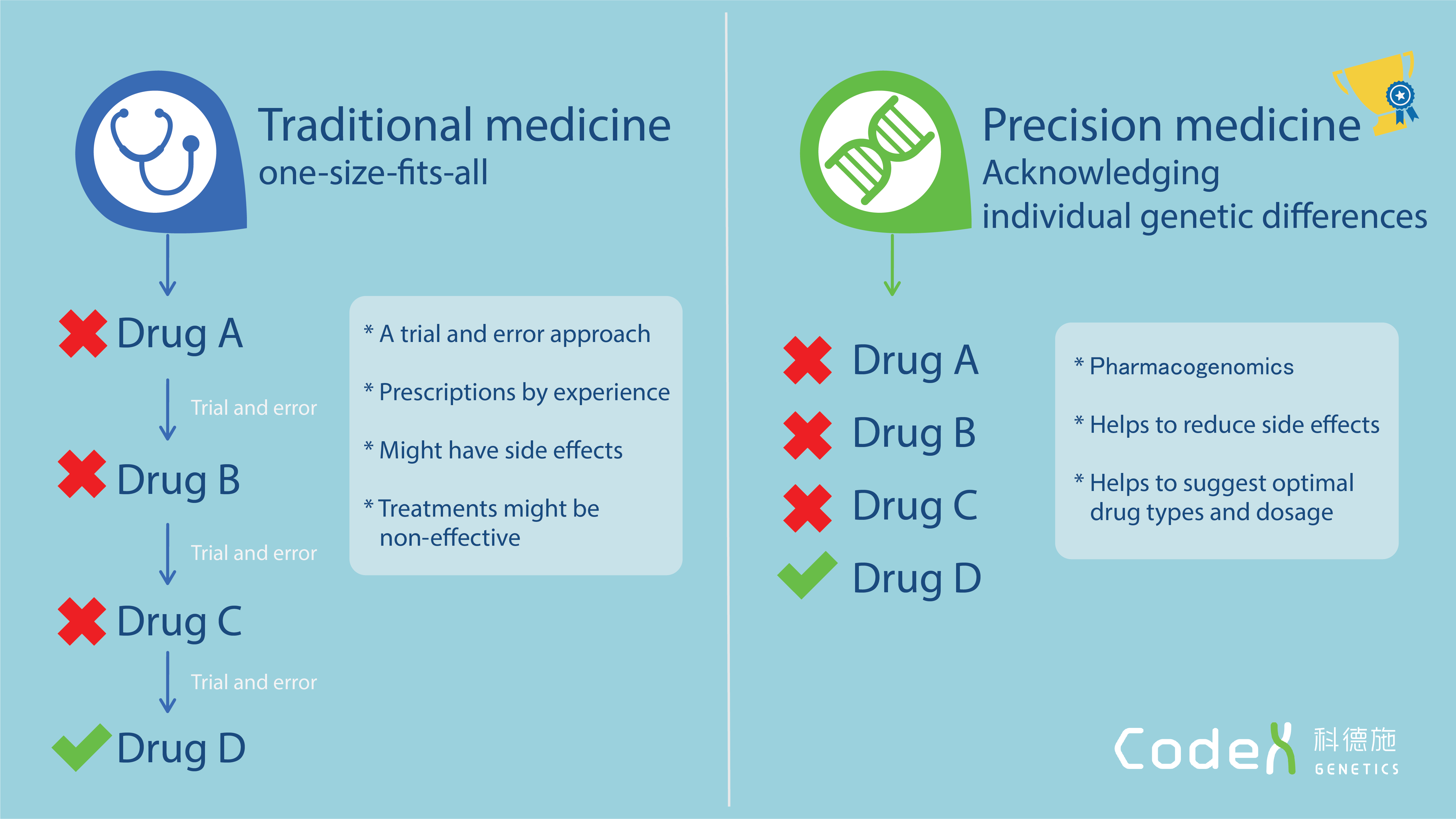Is there a chance that everyone's medication effectiveness and side
effects are different?
Everyone has a different drug response which can be influenced by
external or internal factors. Examples of external factors include
whether individuals are taking other drugs at the same time, which may
lead to drug interactions; individuals may also experience other drug
reactions after eating foods and drinks which influence the function of
drugs taken. On the other hand, internal, personal factors that affect
drug response can consist of height, weight, age, other diseases which
affect body function (such as kidney disease, liver disease), and even
genes. The above factors will affect each person's response to drugs,
and the type and dosage of drugs prescribed needs to account for
individual differences to maximize effectiveness.
In particular, gene mutations can change the expression and/or function
of drug metabolizing enzymes, transport proteins, and drug targets,
leading to differences in drug response. Simply put, genetic differences
affect an individual's metabolism. For those with fast metabolism, the
body quickly metabolizes the drug; this may lead to reduced drug
efficacy as it is processed too quickly. Conversely, for individuals
with slow metabolism, drugs are excreted too slowly; this may cause
toxins to accumulate in the body, causing side effects or adverse
reactions.
Trends in personalized medicine: understanding genetic testing for
drug response
Through drug genetic testing, it is possible to check whether the
patient has genetic mutations that affect drug response, which can help
improve the efficacy of medication, save the cost of medication changes,
avoid adverse reactions, and reduce side effects.
Codex’s drug genetic testing is followed by a report analysis according
to the latest pharmacogenetics guidelines, including the Clinical
Pharmacogenetics Implementation Association (CPIC), the Dutch
Pharmacogenetics Working Group (DPWG), the U.S. Food and Drug
Administration (FDA), and European Public Assessment Reports (EPARs) of
the European Medicines Agency (EMA). With genetic analysis supported by
scientific research, Codex provides medication guidelines for patients,
such as recommended drug changes or drug dosage adjustments.
Medication Instructions
Ultimately, drug responses are very complex and can be influenced by
many factors, including genetics. After obtaining a drug genetic test
report, you must find feasible medication plans under the guidance of a
doctor or pharmacist. Please do not adjust the drug dosage or stop the
drug yourself.











